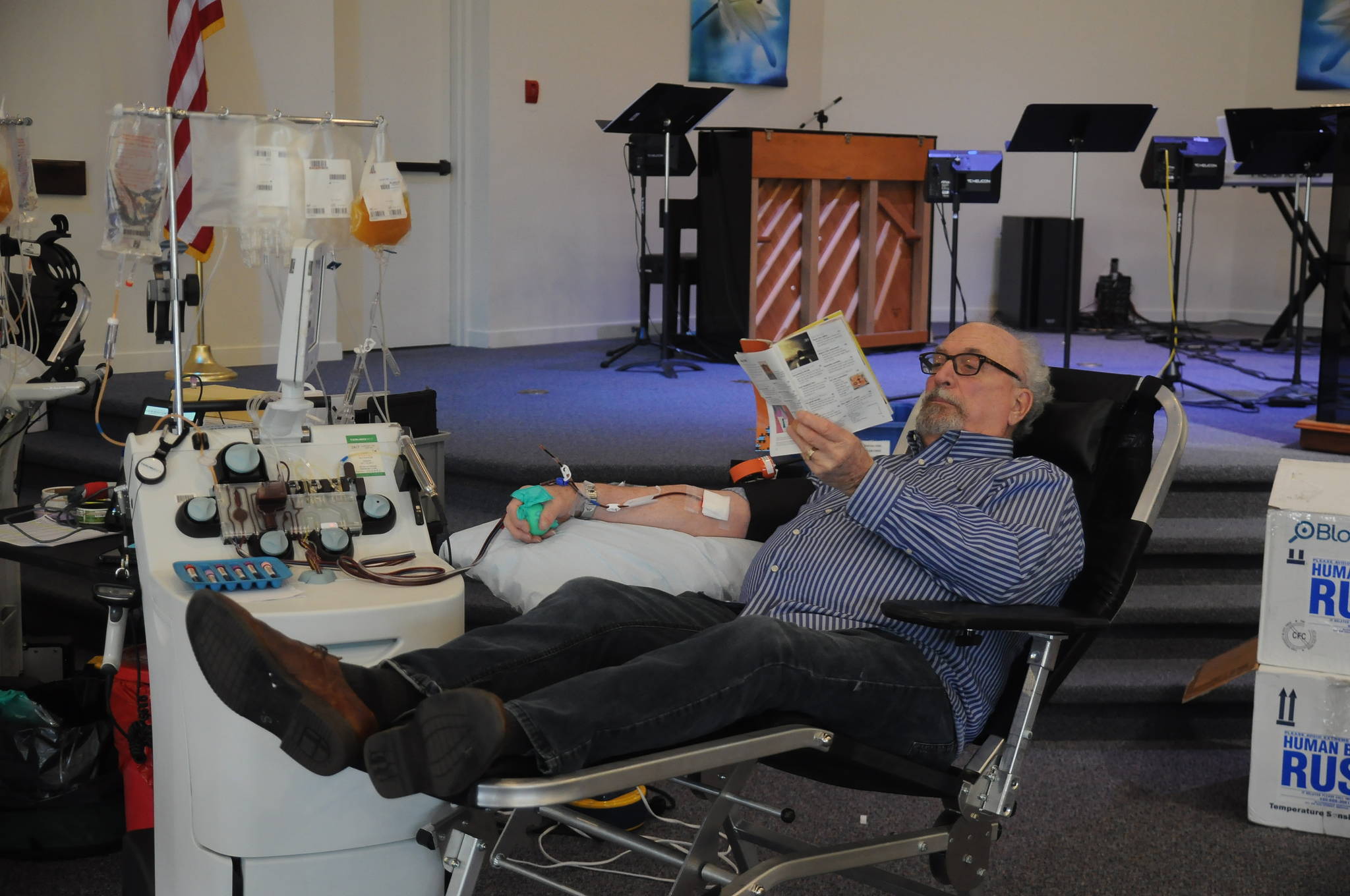Upcoming blood drives
Bloodworks Northwest hosts several upcoming blood drives. Donors must register before donating (see bloodworksnw.org)
Sequim
• March 31, 10 a.m.-4 p.m. — St. Joseph’s Catholic Church, 121 E. Maple St.
• April 13, 9 a.m.-3 p.m. — Sequim Elks Lodge, 143 Port Williams Road
Port Angeles
• March 26-27, 9 a.m.-3 p.m. — Vern Burton Community Center, 308 E. Fourth St.
• April 7, 9 a.m.-3 p.m. — Independent Bible Church, 116 E. Ahlvers Road
Jefferson County
• April 6, noon-6 p.m. — Port Townsend Elks, 555 Otto St.
• April 8, 11 a.m.-5 p.m. — 130 Church Lane (Port Hadlock)
To schedule an appointment, got to schedule.bloodworksnw.org or call 800-398-7888.
While the threat of the COVID-19 coronavirus is keeping a number of Washington state residents home, organizers of regional blood drives are seeing a surge of donors come out and contribute their blood and platelets to help medical centers and hospitals.
The rush to help has been a boon for health care providers — so much so that Bloodworks Northwest representatives are asking those seeking to donate to make appointment and often turning away walk-ins at drives with full bookings.
“We’re seeing a tremendous showing,” said John Yeager, Senior Media Content Strategist with Bloodworks Northwest.
“We’re very grateful for the donors.”
Bloodworks Northwest, which organizes dozens of blood drives across the region, saw a number of drives shut down — such as those at local schools, now closed by executive order, and large businesses such as Amazon — so now donation centers and local drives such as a March 19 drive at Sequim’s First Baptist Church, are taking the load of donations.
“It’s a strange place to be in: we’re able to meet supply right now,” Yeager said, “but we don’t know what’s going to get shut down next.”
That’s why Yeager said Bloodworks Northwest is pushing for donors to not only make appointments but become consistent donors throughout the year. It often happens, he noted, that there is a surge of donations soon after a regional or national disaster but that those donations quickly trail off as the incidents fade from news headlines.
“We’re grateful; many of them are first-time donors,” Yeager said. “(But) we need it to be more than once a year. We have to have enough blood on hand to deal with the next emergency before it happens.
“We can’t afford to take our foot off the gas, we just can’t.”
Making a donation
Donating blood is a safe activity and there is no risk of contracting coronavirus from the blood donation process, state health officials said.
Potential blood donors are exempt from stay-at-home orders in Washington state and Oregon, which do not include essential health services such as those provided by Bloodworks Northwest and its donors, and are not affected by Gov. Jay Inslee’s March 23 “stay at home” order, health officials said.
However, people are asked to not donate if in the last month they have:
• traveled to a country with a CDC Level 3 Travel Health Notice for a Coronavirus Disease 2019 (COVID-19) outbreak (see www.cdc.gov/coronavirus/2019-ncov/travelers/after-travel-precautions.html for more information)
• lived with individuals diagnosed with or suspected of having COVID-19.
• been diagnosed with or suspected of having COVID-19.
In addition, the normal donor screening process includes evaluation of one’s temperature, current health and travel history.
All types of blood are needed for cancer treatment, trauma cases and many other situations.
The process takes an hour; actual donation time takes about seven to 10 minutes, Yeager said.
The Washington State Department of Health has established a call center to address questions from the public. Those with questions about what is happening in Washington state are asked to call 800-525-0127 and press the pound button (#).
“The best thing you can do is make an appointment for a donation; it’s just hard to meet the demand for walk-ins,” Yeager said.
Levels of available donated blood are consistently difficult to maintain, Yeager said, but even more so in the days and weeks following an emergency.
“It’s a precarious place to be if you don’t have enough blood,” he said.
More information on coronavirus and donating blood is available from Bloodworks Northwest at www.blood worksnw.org/coronavirus.
For additional information on COVID-19, visit the Washington State Department of Health (www.doh.wa.gov/Emergencies/Coronavirus) and Centers for Disease Control and Prevention (www.cdc.gov/coronavirus/2019-ncov).



